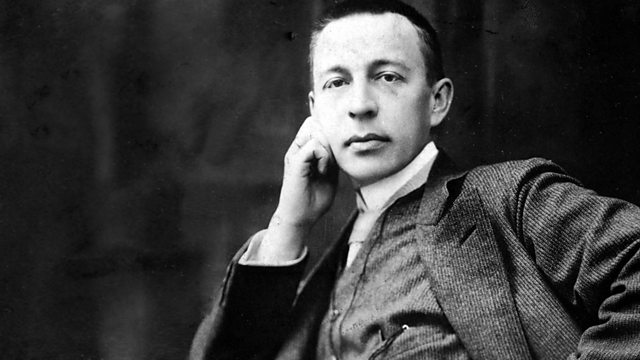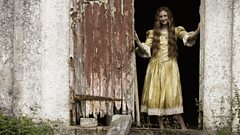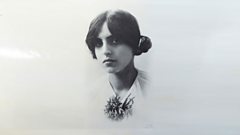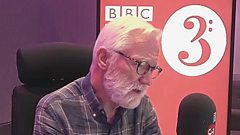Sergei Rachmaninov
Donald Macleod explores the life and work of Rachmaninov.
People outside of the composer's immediate circle were apt to find him somewhat morose, but he had plenty to be morose about. He was born into a land-owning aristocratic family at precisely the wrong moment in Russian history. He lived and worked through the turbulent years of the early twentieth century, culminating, in 1917, in the abdication of the Tsar, the October Revolution and the rise of the Bolsheviks - Rachmaninov's cue to leave Russia, with his wife and two daughters, a couple of suitcases and what little cash he had been able to lay his hands on.
For the remaining twenty-five years of his life he pursued an extraordinarily successful career as an international concert pianist and recording artist, fĂŞted as one of the leading virtuosos of his or any other day. But despite this he continued to regard himself as a refugee from the homeland he would never again set foot in.
Macleod begins by looking at less troubled times, eavesdropping on the teenage composer in love; the 20-year-old winning recognition from no less than Tchaikovsky for his first orchestral piece; and then, just a few years later, the disastrous première of his 1st Symphony, conducted by an inebriated Glazunov and dubbed fit 'for the inmates of Hell' by the bile-filled pen of César Cui.
Next, Rachmaninov’s three-year creative block is explored . He visits his hero Tolstoy hoping for a pep talk, but instead finds a 'thoroughly disagreeable man'. Eventually he gets back on track with the help of a noted Moscow hypnotist, Dr Dahl, who manages to snap him out of his lethargy. Then the floodgates opened - the results included his opera Francesca da Rimini, the 2nd Piano Concerto, one of his most enduringly popular works, and the Cello Sonata - Donald Macleod introduces extracts from all of these.
We then see Rachmaninov and his family decamping first to Italy, then to Dresden, to escape the turmoil of the 1905 Revolution. His time in the Saxon capital doesn't sound like much of a ball - as the composer wrote to a friend, "We live here like hermits: we see nobody, we know nobody, and we go nowhere." Donald Macleod introduces two of Rachmaninov's songs and a complete performance of his 2nd Symphony, given a mixed reception at its première but now a firm concert-hall favourite.
Donald Macleod explores Rachmaninov’s life-long friendship with the famous Russian bass Fyodor Chaliapin. We then follow the composer on his first concert tour of America, where he performed his specially-written 3rd Piano Concerto with the New York Philharmonic conducted by their new Music Director, Gustav Mahler. Back in Russia, Rachmaninov, evidently a bit of a speed-freak, bought a new car, a Loreley, but he would only have a few years to enjoy it -it was destined, perhaps, to become the proud possession of some Bolshevik bigwig. Donald Macleod introduces extracts from three of the last works Rachmaninov composed on Russian soil.
Donald Macleod concludes by looking at Rachmaninov after the Revolution - his escape to Stockholm, his passage to the United States, and the new career he built for himself there. To his constant regret it was a career that left little time for composition; 39 of Rachmaninov's 45 opuses were written before he left Russia.
Nonetheless, he created some of his best-loved music in this final phase of his life; Donald Macleod introduces the composer's own performance of the Rhapsody on a Theme of Paganini, as well as extracts from his 3rd Symphony and his Symphonic Dances in their original version for two pianos, thrillingly performed by two present-day Russian pianists, Dmitri Alexeev and Nikolai Demidenko.
Duration:
Credits
| Role | Contributor |
|---|---|
| Composer | Sergey Rachmaninov |
This clip is from
Featured in...
![]()
Discovering Rachmaninov—Composer of the Week
Listen to programmes examining the life and works of Sergei Rachmaninov.
More clips from Composer of the Week
-
![]()
Wrth fynd efo Deio i Dywyn (trad.) arr. Jayne Davies
Duration: 01:46
-
![]()
Lisa lân (traditional) , arr. Jayne Davies
Duration: 03:12
-
![]()
Morfydd Owen's Llwyn Owen, arr. Edward-Rhys Harry
Duration: 05:17
-
![]()
Blacklisted!—Sofia Gubaidulina (b 1931), An Incorrect Path
Duration: 01:21







